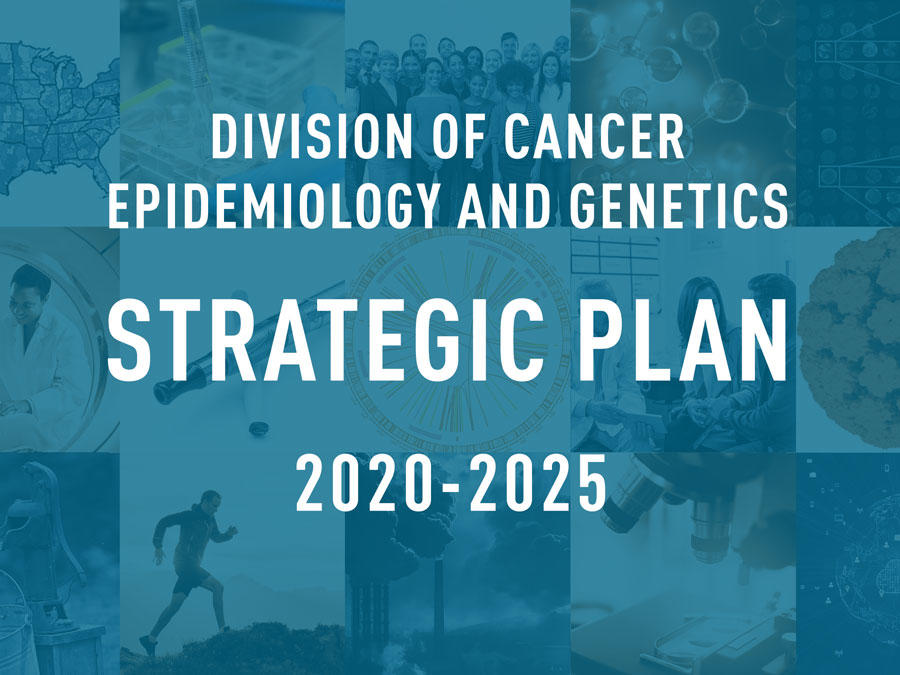Strategic Plan Outlines Research Priorities
, by Jennifer K. Loukissas, M.P.P.
Leaders across the Division engaged in a strategic planning process culminating in a new mission statement, a trio of strategic goals in support of the mission, a high-level overview of the present research portfolio, and a framework of scientific priorities. The DCEG Strategic Plan for 2020-2025 was presented to and approved by the NCI Board of Scientific Counselors and published on the DCEG website earlier this year.
The research priorities and objectives laid out in the plan envision a future of epidemiology that embraces the full potential of new and emerging analytic technologies, exposures, and data sources. Investigators will prioritize research that evaluates emerging exposures, including novel biomarkers, employs cutting-edge exposure assessment, and strives to reflect the racial and ethnic diversity of the U.S. population. Knitting together these critical and complex approaches will lead to a better understanding of cancer etiology and its biological mechanisms, improve identification of individuals and populations at risk, and inform strategies for prevention and treatment of cancer, including approaches to reduce health disparities.
The Connect for Cancer Prevention Study—the new premier prospective study to enroll ~200,000 adults of diverse backgrounds with longitudinally collected data and biospecimens—will provide the foundation for much of this work. Conducted in collaboration with integrated health care systems across the U.S., with access to electronic health records, Connect capitalizes on strategic, scientific approaches critical for modern prospective epidemiological investigations.
DCEG plans to increase investment in imaging and tissue collections, investments in technology and Cloud infrastructure and computing, development of stable and reproducible bioinformatics pipelines, professional development, and strategic partnerships with other expert leaders in the field.
Woven through the plan is the Division’s commitment to remain at the trans-disciplinary methodological forefront with the adoption of FAIR (Findable, Accessible, Interoperable, Reusable) data principles through interoperable platforms offering trusted data governance, easy access to data/meta-data and powerful analytics, and through the distribution of open-source tools.
“We are immensely proud of the work that went into developing this roadmap for the future of DCEG’s research program,” remarked Stephen J. Chanock, M.D., Director. “While embracing these new, bold approaches, the Division will maintain its investment to inspire innovation and initiative of individual investigators and trainees, from large-scale research projects to small-scale efforts that could lead to new breakthroughs.”
Several senior scientific staff appointments were made as part of the implementation of the plan. First, the Division established the Trans-divisional Research Program (TDRP), led by Montserrat García-Closas, M.D., Dr.Ph., who also serves as Deputy Director of the Division. Amy Berrington, D.Phil, senior investigator and Chief of the Radiation Epidemiology Branch was appointed Senior Advisor for Strategic Activities, and Maria Teresa Landi, M.D., Ph.D., senior investigator in the Integrative Tumor Epidemiology Branch, as Senior Advisor for Genomic Epidemiology, both in TDRP.
The strategic planning process was chaired by Dr. García-Closas and co-chaired by Dr. Berrington. The DCEG Strategic Plan 2020-2025 and mission statement are available on the Division website.
